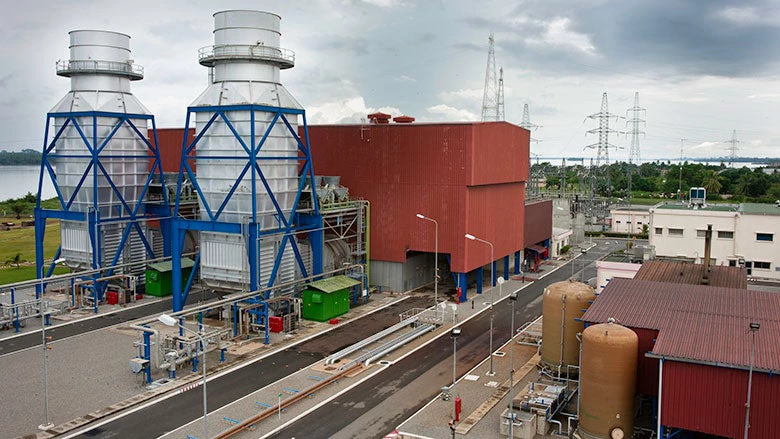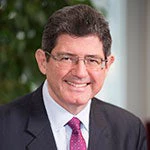An estimated 1.2 billion people — almost one in every five people in the world — are living in areas affected by conflict and fragility today. Some of these people are fleeing from war, while others have escaped natural disasters. Most are trying to earn a living in very challenging environments.
These are not abstract numbers — we are talking about real people, with real problems. Hence, we need to ask ourselves, in the public and private sectors, what strategies can help them.
We know that the private sector is an indispensable force for economic growth. It’s also crucial in countries emerging from crises. These communities need investment to create jobs, spur economic growth, generate tax revenues, bolster infrastructure, and create a sense of hope for their people. And, simply put, a society with an economic stake in peace is less likely to return to conflict.
However, all too often investors perceive doing business in fragile and conflict environments as too risky. Of course, one may find big challenges in these countries. But also opportunities.
In a time when extremely low interest rates in many places indicate an excess of capital in relation to actual investment, we should ask ourselves how finance can help reduce the gap between the needs of savers around the world and those of the private sector in so-called fragile markets.
On May 18-19, the World Bank Group will host the 2016 Development Finance Forum “Unlocking Opportunities in Fragile Markets” in Dublin, gathering together investors from the private sector, emerging market entrepreneurs, frontline workers and other partners to come up with alternatives and options to reduce that mismatch between capital in search of investment opportunities and a teeming workforce in so many different countries.
We know what many of the constraints to match expectations of investors and entrepreneurs in fragile markets are. Weak government institutions, lax legal and regulatory frameworks and inadequate infrastructure and services all make doing business difficult. Firms cite limited access to power and to finance, as well as political instability as the top three barriers to growth in these countries, according to the Bank Group’s Doing Business rankings.
To attract investment and help companies and people prosper, governments need support in improving their tax systems and public expenditure management to get more accountable, rebuild trust and increase future domestic resources.
The World Bank Group has been supporting fragile states, working with them to improve their investment climates, increase their access to finance, including for small businesses, and mobilize domestic and international investment.
IFC, our private sector arm, invested $2.5 billion over the past three years in fragile markets in projects generating power, reviving telecommunications networks, increasing food security, helping entrepreneurs access finance, and creating employment opportunities for women and youth.
This type of investment is achieving real results across the globe. Take for example, the Azito power plant in Côte d’Ivoire. IFC invested $125 million and arranged a $345 million package funded by the five European development finance institutions and the West African Development Bank. The World Bank helped the government put in place a robust regulatory framework, while MIGA provided political risk insurance. The largest independent power generator in Sub-Saharan Africa, Azito will produce 50% more energy and serve more than two million people.
This strategy should continue to be developed and deployed. We have to address the challenges and find solutions in the different segments of investment value chains in fragile countries as well as in emerging markets in general.
In the downstream segment of these value chains, designing high-quality projects and addressing regulatory hurdles will help create bankable, attractive investment opportunities.
The midstream segment comprises risk mitigation instruments that can be supplied by multilateral financial institutions, as well as the standardization of contracts. There we need robust financial structures while reducing the informational burden on investors.
In the upstream segment, creating an environment that provides adequate guidance and incentives to investors and allows infrastructure securities to become an asset class will be essential to unlock a larger share of the wallets of institutional investors, especially in the fixed income space. Developing equity and fixed-income indexes can be stepping stones for this purpose, providing an indispensable reference to benchmarking and hedging portfolio strategies for a broader range of investors.
The same is true for developing local capital markets, bringing in another essential piece to help mobilize the trillions needed to help those emerging from conflict and instability.
Many of the participants in the Forum are working on the frontlines and are well placed to provide insight on how to further these value chains and develop their main links. The Bank Group is ready to listen and learn from their example. Together, we can provide an economic leg up to help these communities rebuild and thrive.
How can we make progress in countries affected by fragility, conflict and violence? You can join the conversation on World Bank Live, an event webcast live from the DFF Dublin at 11:05 a.m. IST (6:05 a.m. ET) on May 18.



Join the Conversation